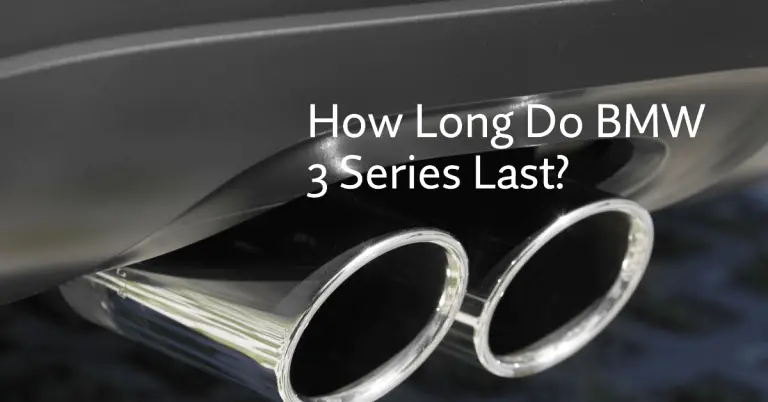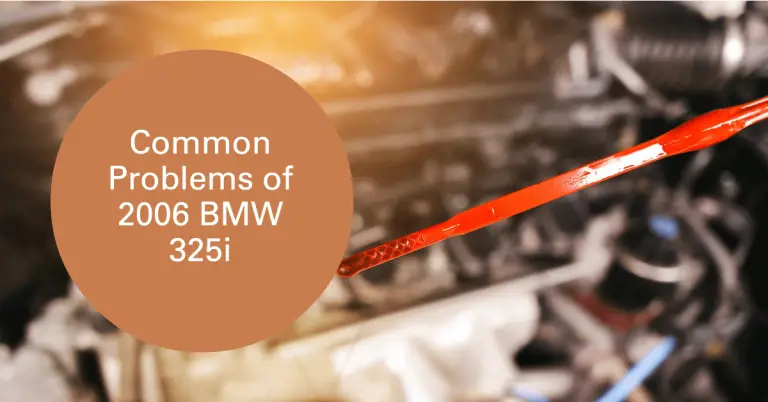BMW 328i Oil Type: A Comprehensive Guide
If you just purchased a BMW 328i or have owned one for years, you may be wondering: what type of oil should I use in my BMW 328i – synthetic or conventional? Keeping your BMW’s engine properly lubricated is crucial for maximizing performance and longevity. The right oil helps keep critical components like the turbocharger running smoothly while also boosting fuel efficiency.
The short answer is that full synthetic motor oils are recommended by BMW for the 328i. Conventional oil can work as a temporary fill-in between full synthetic changes, but does not offer the same level of protection and lubrication.
In this detailed article, we’ll compare synthetic and conventional motor oils head-to-head. You’ll learn the pros and cons of each oil type specifically for use in a BMW 328i engine. We’ll also cover BMW’s own motor oil recommendations, optimal oil change intervals, and other maintenance tips to keep your 328i in peak condition.
Breaking Down the Key Differences Between Synthetic and Conventional Oils
Before jumping into specifics for the BMW 328i, let’s look at some general differences between synthetic and conventional motor oils. This will provide helpful context later when we look at which oil type fits best for your 328i.
Synthetic motor oil is engineered in a laboratory setting to create uniform oil molecules that are perfectly tailored for the demands of modern engine components. The man-made additive packages also give synthetic oils superior resistance to breakdown at high temperatures.
Conventional motor oil is refined from crude oil with some additive packages mixed in. Since it’s less processed than synthetic oil, the molecules are not uniform in size or shape. The quality also varies more batch-to-batch.
Here are some key areas where synthetic and conventional motor oils differ:
1. Heat Resistance and Cold Flow
The highly uniform synthetic oil molecules are far more resistant to thinning out at high engine temperatures. Synthetic oil retains its viscosity and stays where it needs to be longer when the engine heats up.
The advanced additive packages also prevent deposit formation, oxidation, and oil breakdown better than conventional oils. Your engine stays cleaner inside.
In cold winter temperatures, synthetic oil flows better than thick conventional oil. This allows vital lubrication during cold starts when the 328i engine needs it most.
2. Contaminant Control
The exclusive synthetic additives also do a better job of holding contaminants like dirt and debris in suspension. This keeps these particles from abrasively grinding against engine components.
Conventional oil allows more deposits and sludge to form since its molecules are less uniform and react differently to heat and contaminants. More debris can settle out of suspension.
3. Reduced Friction and Wear
The slippery synthetic oil molecules slide smoothly over metal surfaces, reducing friction and component wear, especially during high RPMs and load. Conventional oil has higher friction.
This reduced friction also slightly boosts fuel economy in the BMW 328i when using synthetic over conventional oil. Every mile per gallon counts!
4. Extended Oil Drain Intervals
With synthetics lasting longer before breaking down, you can drive farther between oil changes. Most synthetics allow drain intervals of 10,000-15,000 miles or longer.
Conventional oil needs to be changed more often – around every 3,000-5,000 miles for most vehicles. The molecules just can’t hold up as long.
Now let’s take a look specifically at why synthetic is the recommended oil type for the BMW 328i engine.
Why BMW Recommends Full Synthetic Oil for the 328i?
BMW states in their owner’s manuals that full synthetic engine oils meeting certain specifications should be used for all their engines – including the 328i.
There are several good reasons why synthetic is preferable to keep a BMW 328i running flawlessly:
Synthetic oil withstands the unique demands of a turbocharged engine better. The 328i has a twin-scroll turbo that spins at very high RPMs, generating heat. Synthetic oil resists thinning and deposit formation much better than conventional oil in these conditions. The uniform molecules also reduce friction on turbocharger bearings spinning over 150,000 RPMs!
The slippery synthetic oil enhances fuel efficiency. Reduced friction from synthetic oil leads to a small but measurable fuel economy improvement compared to conventional oil in the 328i. When you drive a powerful turbocharged luxury sedan, all mpg boosts add up.
BMW engines have tight tolerances that synthetic protects. All the precisely engineered BMW engine components with very tight clearances need a high quality lubricant. Synthetic oil flows better when cold and maintains viscosity when hot, keeping everything lubricated properly.
Synthetic oil keeps the 328i engine cleaner. Detergent and dispersant additives in synthetic oil do a better job minimizing deposit formation and contamination that leads to premature wear in the BMW designed motor. Less sludge build up means better internal engine health.
The BMW engineers who designed the 328i powerplant recommend full synthetic oils for good reason – this specialized lubricant offers the best protection across a variety of demanding driving conditions.
Next let’s look at some specific full synthetic motor oil options recommended for use in the BMW 328i.
Top Full Synthetic Motor Oils Recommended for BMW 328i
When it comes to selecting a full synthetic motor oil for your BMW 328i, you have a few good options:
BMW Twin Power Synthetic Motor Oil
As you might expect, BMW has their own BMW Twin Power synthetic oils formulated specifically for their engines. For a 328i, the 0W-20 viscosity grade is recommended.
Benefits of BMW Twin Power oil:
- Designed by BMW engineers specifically for their engines
- Formulated for long intervals between changes – up to 15,000 miles
- Provides enhanced engine cleanliness
- Excellent cold flow for cold starts
- Protects turbocharged engines very well
One downside is that BMW Twin Power oil tends to be more expensive than leading third party synthetics. However it’s the preferred factory oil for a reason – this lubricant is engineered precisely for the demands of BMW engines.
Mobil 1 0W-40 Synthetic
Mobil 1 is one of the most respected brand names when it comes to synthetic motor oil. Their 0W-40 European Car Formula is an excellent choice for the BMW 328i engine.
Advantages of Mobil 1 0W-40:
- Protects at extreme temperatures from -40 °F to 500 °F
- Formulated for European vehicles -meets standards for Mercedes, VW, Porsche, BMW
- Protects turbochargers and direct injection systems
- Outstanding wear protection
- Improves fuel economy versus conventional oil
- Great price for a premium fully synthetic oil
The Mobil 1 brand has decades of experience crafting synthetic oils that perform and protect. Their 0W-40 oil is a cost effective option tailored for European sports sedans like the 328i.
Castrol EDGE 0W-40 Synthetic
Castrol EDGE is another leading full synthetic engine oil suited for BMWs. Their 0W-40 has several advantages:
- Made using synthetic base oil technology
- Reduces deposits up to 68% compared to other synthetics
- Excellent oxidation stability
- Enhanced performance in low and high temperatures
- Protects in extreme driving conditions
- Recommended for vehicles with turbochargers and high performance engines
Castrol EDGE flows easily when cold and provides exceptional thermal stability as operating temps rise. This 0W-40 oil is specifically formulated for the demands of German engineering.
No matter which marque you choose, always go with a high quality full synthetic 0W-20 or 0W-40 oil to keep your BMW 328i running smoothly. Now let’s discuss proper oil change intervals and procedures.
How Frequently Should I Change My BMW 328i’s Oil?
With a high quality full synthetic oil, you can typically go 10,000-15,000 miles between oil changes in a BMW 328i. Most synthetic oils are formulated to last and protect for extended drain intervals.
This is assuming you are doing mostly highway driving under normal conditions. More severe driving conditions like frequent towing or lots of stop-and-go traffic means more frequent changes may be prudent.
For conventional oil, change intervals should be much shorter – around every 3,000-5,000 miles. Conventional oil just does not have the same thermal breakdown resistance and lubricity retention as full synthetics.
BMW includes an electronic oil monitoring system that alerts you when oil changes are due. Wait until it shows roughly 15% oil life remaining before taking your 328i in for an oil service. This system accounts for your driving habits and conditions to provide dynamic change reminders.
When changing oil, be sure to also replace the filter and follow proper oil fill procedures. Only use filters that meet BMW specs – don’t go with a cheap off-brand option. And when refilling oil, do so slowly and carefully. These steps will keep your oil at the right level and ensure no leaks develop.
Let Us Handle Your BMW 328i’s Oil Changes!
We hope this article has helped explain the differences between synthetic and conventional motor oils in the context of a BMW 328i engine. Full synthetic oils like BMW Twin Power, Mobil 1, and Castrol clearly offer superior protection and performance – which is why they are recommended by BMW.
Bring your BMW 328i to our European service center and we’ll take care of your oil changes using top rated synthetic oils and OEM spec filters. We also offer expert BMW maintenance and repairs to keep your powerful luxury vehicle running smoothly for years to come. Contact us today to schedule service or if you have any other questions!







